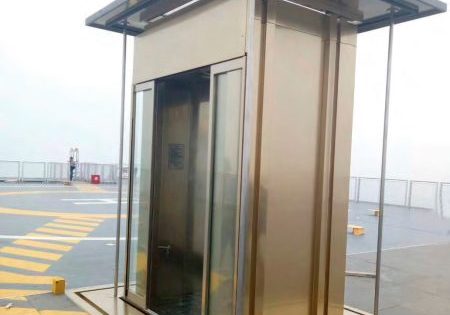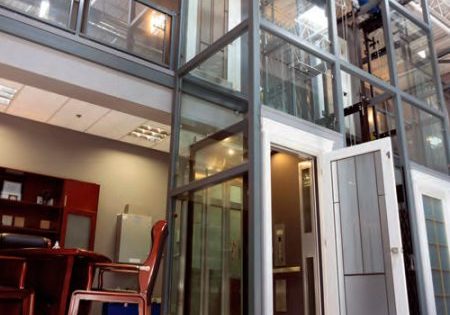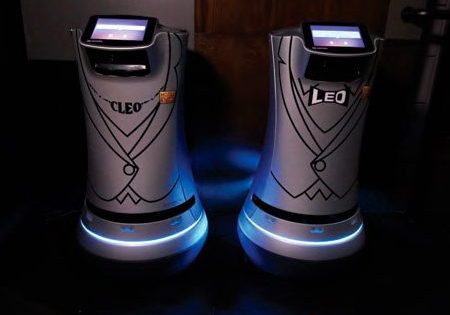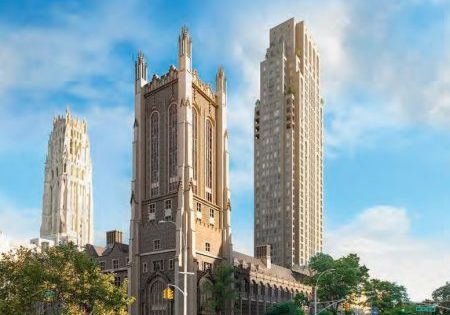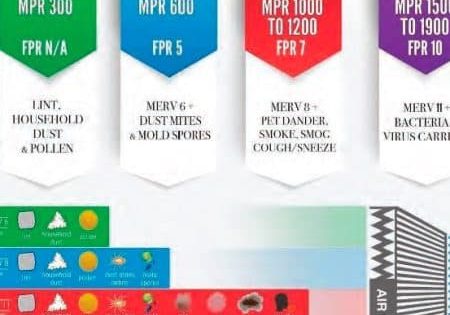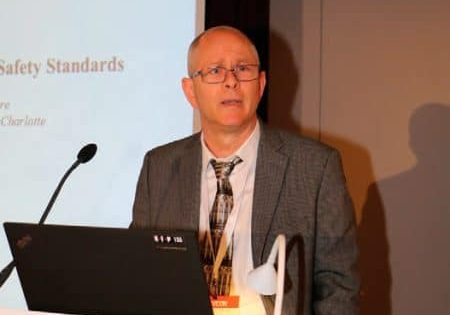Service, Technology Distinguish Dupar
Aug 1, 2020
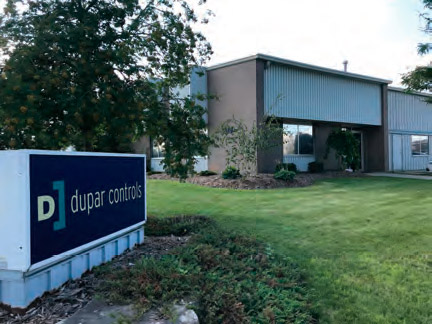
Cambridge-based supplier has offered quality fixtures to the VT industry for 60-plus years.
by Matt Irvin
Dupar Controls, based in Cambridge, has been supplying the vertical-transportation (VT) industry for more than 60 years. Launched in 1958 by U.K.-based Dewhurst Group, Dupar supplies push buttons, panels, keypads and touchscreens to elevator contractors, both independents and OEMs, as well as other industries. It serves as the North American headquarters for Dewhurst.
Dupar’s main market is North America and the Caribbean. In addition to its headquarters in Canada, the company has a sales office in Chicago and a sister operation, Dupar|ERM, a Los Angeles-based company, that report to the Cambridge headquarters.
George Foleanu, vice president for North America, leads Dupar and is responsible for all North American operations. The Canadian operation employs approximately 64 people at its Cambridge headquarters and two in the Chicago-area office.
“Our location here in Canada is a full manufacturing and design facility,” Foleanu said. “We have had very successful growth over our many years of history, since 1958.” He said Dupar was launched as a partnership between Dewhurst and a local electric company, later opening the Chicago office. “About 10 years ago, we acquired the company in L.A., which is part of a venerable service company, Winter & Bain,” he added.
Dupar is in the process of building a new headquarters and manufacturing facility in Cambridge, a city about a 45-min drive from Toronto. The new building, Foleanu said, would double Dupar’s current facility area to 58,000 ft2. Moving to the new plant, which is scheduled to happen in November, will be accompanied by further investment in automation, process improvements that will lead to immediate positive customer experience. He continued:
“We’re a very efficient company [and] flat organizationally. We like to keep it simple; we focus closely on our clients’ specific needs. We are flexible and nimble to ensure a smooth, efficient operation. Investing in automation both at the front end as well as manufacturing combined with applying Lean principles are our foundation for continued success and market-share growth.”
Dupar enjoys a broad customer base. “Our products are used by all Canadian contractors, independents and OEMs alike; we are the supplier of choice for architects and consultants, with a dominant market share to prove it.” The company’s longevity is certainly part of the reason for this, Foleanu said.
Foleanu noted that parent company Dewhurst — which recently marked its 100th year in business — has a broad, global reach, literally on every continent (“apart from Antarctica,” Foleanu said).
Major Projects
Dupar products are in major projects around North America, including:
- The Washington Monument, Washington, D.C.
- Willis Tower, Chicago (destination dispatch)
- Major post offices throughout the U.S.
- The University of Chicago Mitchell Hospital
- Many U.S. military bases
- Pearson Airport, Toronto
- Scotia Plaza, Toronto
- Constitution Tower 1 & 2, Ottawa
- Place Ville Marie, Montreal
- Toronto Sick Kids Hospital
- Place De Ville — Tower C, Ottawa
- Transit City Towers, Toronto
- Grey Nuns Hospital, Edmonton
Dupar is financially strong, but it has felt some effect from the COVID-19 pandemic. Foleanu explained:
“Like everybody, we’ve been affected primarily by supply chain disruptions; however, business is moving back to the pre-COVID levels very quickly. It’s back to business as usual.” It seems that, at the front end, there’s no change at all. The sales and design teams are full-on, 100% of what they were before, which is surprising for me — I expected to see a little slowdown on the front end, but there really hasn’t been any. But there has been a slowdown on schedules from customers. [Many] are actually asking for things to be pushed out, with the challenges in the field to install product. Maybe their teams have shrunk, and, as we all know, social distancing is affecting the way a lot of work is being performed in the construction business. So, we’re aligning with our customers, and if they are having a little bit of disruption, it’s transferring up the chain, but nothing really to be worried about, at all, that I see so far.”
The pandemic has spawned new interest in the Dupar AB (antibacterial) button, and the newly introduced Anti-Microbial line, which offers protection against COVID- and SARS-like viruses.
Dupar’s business involves a great deal of custom work, so it’s not a simple task to identify the company’s top-selling item. Foleanu mentioned the company’s touchscreen offerings as a high-profile product. “Our US1 Touch product line is a touchscreen control for elevators. There is a wide range of sizes and technical capabilities. It’s fully sealed, has no moving parts and withstands the challenging environment of elevators very well. No dust gets in, no water gets in, and it has vandal-resistant properties.”
The company’s foundation product is push buttons, the subcomponents of which are designed and manufactured in Europe. Those for the North American market are assembled at Dupar’s Cambridge facility. Also made in Canada are keypads, used in not only destination-dispatch elevator systems, but also in bank ATM machines.
Dupar uses automation to maintain efficiency, Foleanu said:
“We have invested a great deal in automation, both in the front, as well as in the back end. A lot of companies that do engineering and panels use AutoCAD, but long ago, we moved to more-modern tools. The Uniblade-Flush, a flush-mounting We’re running in full hall direction indicator 3D, integrated manufacturing systems, so we design in an environment that is specialized and geared specifically to designing elevator products. Our engineers use a system fully integrated with the equipment and our material requirements planning system.”
The company is close to a number of institutions of higher learning that are a good source for talent, Foleanu said, “giving us a large, healthy pool of talent right at our doorstep.”
Dupar is a longtime member of the Canadian Elevator Contractors Association (CECA) and National Association of Elevator Contractors (NAEC) and exhibits at their annual expositions. “We’re proud members of NAEC and have been for many, many years — easily over 30 years,” Foleanu said. “We’ve [also] been members of CECA and proudly so. I’ve served on the board of CECA and also am on the supplier committee of NAEC. We are proud of our long history and ensure that we give back to the industry.”
Get more of Elevator World. Sign up for our free e-newsletter.



